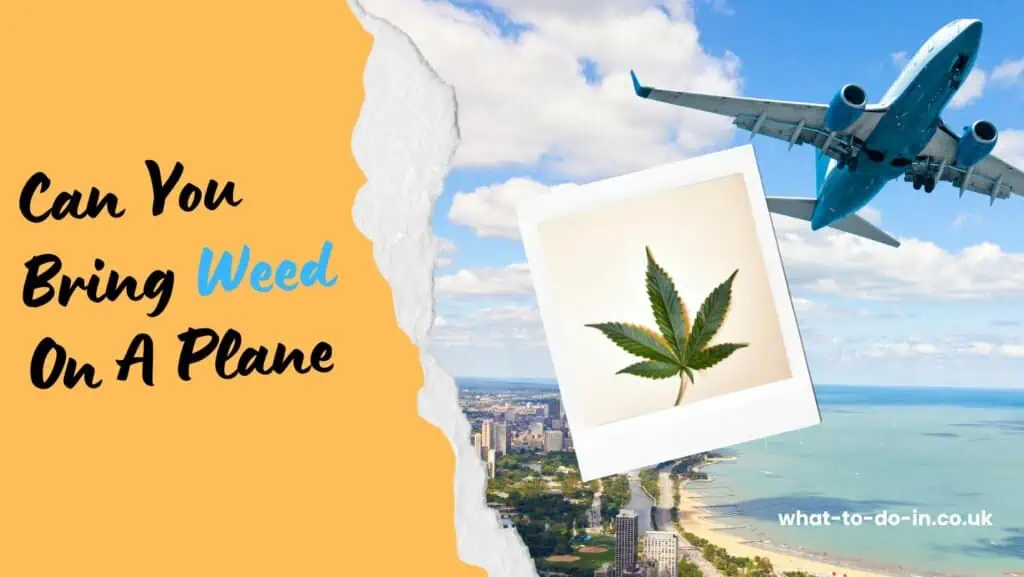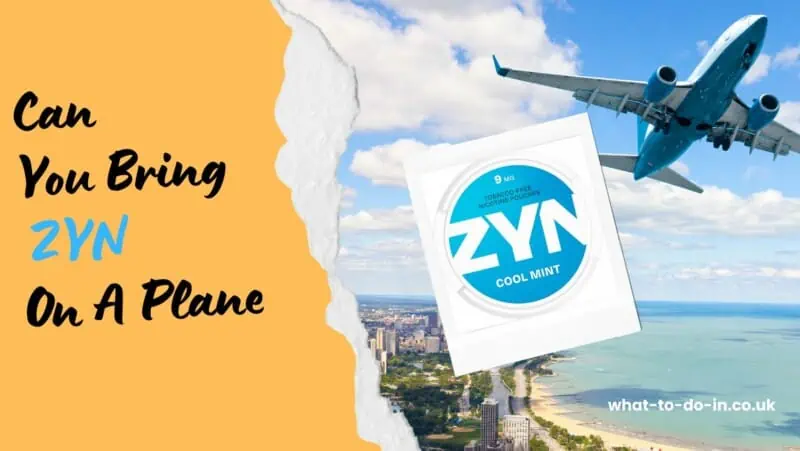Traveling with weed, despite its legalization in numerous states across the United States and several countries around the world, remains a complex issue due to varying international and federal laws. Marijuana, commonly referred to as weed, is a psychoactive drug from the Cannabis plant used for medical or recreational purposes. Its legal status is one of the significant hurdles for travelers looking to carry it aboard aircraft.
The history of modern cannabis travel regulations is a tale of evolving policies and cultural shifts. In the United States, for example, although several states have legalized marijuana for both medical and recreational use, it remains illegal under federal law. This legal contradiction is particularly relevant in airports and during flight, as they are under federal jurisdiction where federal law applies. The Transportation Security Administration (TSA), a federal agency, is primarily concerned with safety and security and typically does not search for drugs; however, if illegal substances are discovered during security screenings, TSA agents are obliged to report this to local law enforcement.
Internationally, the situation can be even more complex, with countries having their own unique laws and penalties that can range from minor fines to severe legal consequences for the possession of cannabis. Travelers therefore must navigate a maze of regulations that change from one destination to another. The evolution of these laws continues to shape discussions about the decriminalization and legalization of marijuana globally. Understanding the ever-changing legal landscape is crucial for those attempting to travel with cannabis in any form.
Can You Take Weed On A Plane?
When considering whether you can take weed on a plane, it’s crucial to understand the complex legal landscape that governs this issue. The legality of carrying cannabis, including marijuana, on an aircraft is primarily determined by the laws of the departure and arrival locations, as well as the regulations set by the Transportation Security Administration (TSA) and the Federal Aviation Administration (FAA) in the United States. Federally, marijuana remains illegal, and since airspace is regulated by federal agencies, carrying cannabis on a flight often violates federal law, regardless of state laws. However, some airports in states where marijuana has been legalized may have different policies for possession within the airport. It’s important to note that international travel with cannabis is generally prohibited, as it can lead to serious legal consequences. For a comprehensive discussion on the nuances of traveling with weed, including potential risks and legal considerations, continue to the following section where we delve deeper into the subject.
Understanding TSA Guidelines on Weed for Domestic Flights
The Transportation Security Administration (TSA) adheres strictly to federal law, which still classifies marijuana as an illegal substance despite varying state laws. Therefore, even if you are flying from a state where marijuana is legal to another with similar laws, TSA’s federal mandate prohibits the transport of marijuana on domestic flights. Passengers are subjected to potential legal consequences if found with marijuana at security checkpoints.
For more detailed information, passengers can refer to the official TSA website regarding transporting marijuana and other substances.
Medical Marijuana and CBD on Domestic Flights
- Marijuana, including medical marijuana, remains illegal under federal law and is thus prohibited on domestic flights.
- The only exception for cannabis products is for certain FDA-approved medications and hemp-derived CBD products with no more than 0.3% THC on a dry weight basis.
- It is advisable to carry any documentation related to hemp-derived CBD products or FDA-approved medication, such as certificates of analysis or prescriptions.
Consequences of Traveling with Weed on Domestic Flights
- TSA agents are obliged to report discovered marijuana to law enforcement officers.
- Potential legal repercussions depend on local laws where the airport is located.
- Even if no legal action is taken, travelers can face delays and miss flights due to law enforcement review.
How TSA Detects Marijuana During Security Screenings
While TSA’s primary focus is not to search for drugs, their screening procedures are designed to detect potential threats to aviation and passengers. However, during the screening process, if illegal substances like marijuana are identified, TSA is bound by law to notify local police. This is regardless of the amount of weed carried or the passenger’s medical condition.
Traveling Between States with Different Marijuana Laws
When traveling from a state where marijuana is legal to one where it is not, it is crucial to remember that federal law governs controlled substances on flights. Carrying weed across state lines can result in federal charges, regardless of state laws at the starting point or destination.
Alternatives to Carrying Weed on Domestic Flights
- Research legal dispensaries at your destination where you can legally purchase marijuana if it is legal in that state.
- Consider other forms of pain relief or medication alternatives that are legal and TSA-compliant for travel.
Best Practices for Lawful Transportation of Permissible Substances
- Place any allowed hemp-derived CBD products or FDA-approved medications in your carry-on or checked baggage in their original packaging.
- Have any necessary prescriptions or certificates of analysis accessible for inspection if questioned by TSA or law enforcement.
- Check the latest TSA guidelines on the transportation of such substances before your flight to ensure compliance and updates on regulations.
| ✔ Pros | ✘ Cons |
|---|---|
| Medicinal users can maintain their treatment regimen. | It’s illegal under federal law to transport cannabis by air. |
| For travel within certain states, it may be legal. | Risk of legal consequences, including fines and arrest. |
| Some international destinations may have more relaxed laws. | Most international travel destinations have strict drug laws. |
| May be allowed for hemp-derived CBD with less than 0.3% THC. | Airport security screenings can lead to drug possession charges. |
| Carrying a small amount might go unnoticed. | Varied state laws make it complicated to navigate legality. |
International Air Transport Association (IATA) Guidelines
The International Air Transport Association (IATA) provides guidance for airlines and passengers regarding the transport of restricted items, including cannabis products. As the legal status of cannabis varies by country, IATA’s role is to ensure safety and compliance with international regulations during air travel. It is important to note that IATA itself does not set these laws but rather informs stakeholders about the existing legal framework.
- IATA emphasizes adherence to international conventions such as the 1961 Single Convention on Narcotic Drugs.
- It advises airlines to stay updated on the varying laws of countries regarding the carriage of cannabis.
- Passengers are reminded that transporting cannabis across international borders is generally prohibited under international law.
For specific guidelines, passengers should consult the IATA’s Dangerous Goods Regulations and the respective airline’s policies. Unfortunately, IATA does not provide a public-facing page dedicated to cannabis transport guidelines, but their general guidelines can be found on the IATA website: IATA Dangerous Goods Regulations.
Country Specific Regulations
When considering flying with cannabis internationally, it is crucial to understand that laws and regulations regarding the possession and transport of cannabis vary significantly from country to country. Some countries have strict penalties for drug trafficking, including cannabis, which can range from heavy fines to imprisonment. It is the responsibility of the traveler to be aware of and comply with the laws of the country they are entering or transiting through.
United Kingdom
- Carrying cannabis into or out of the UK is illegal and can result in severe penalties.
- For more information, refer to the UK government’s official guidelines: UK Government Drug Licences.
Europe
- European countries have varying laws on cannabis, with some allowing medicinal use and others completely prohibiting it.
- Travelers should check the specific regulations of each European country they plan to visit.
Canada
- While cannabis is legal for recreational use in Canada, it remains illegal to transport it across international borders.
- Details can be found on the Canadian government’s official website: Cannabis and International Travel – Government of Canada.
Australia
- Australia has strict drug laws, and the import or export of cannabis without a permit is illegal.
- For more information, visit the Australian Government Department of Health: Importing and Exporting Drugs – Australian Government Department of Health.
New Zealand
- New Zealand prohibits the personal importation of cannabis.
- Refer to the New Zealand Customs Service for details: Prohibited and Restricted Items – New Zealand Customs Service.
Asia
- Many Asian countries have zero-tolerance policies for drugs, including cannabis, with severe penalties.
- Travelers should consult the embassy or consulate of the specific Asian country for guidance.
Singapore
- Singapore has some of the strictest drug laws in the world, and the possession, consumption, or trafficking of cannabis can result in severe punishment.
- For official information, visit the Singapore Central Narcotics Bureau: Singapore Central Narcotics Bureau.
10 Airline-Specific Regulations for Flying with Weed
Airlines have their own set of policies regarding the transport of cannabis, which are in line with the legal framework of their home countries and the destinations they serve. Below are regulations from 10 different airlines. It is imperative for passengers to review and understand the airline’s policy before attempting to fly with cannabis, even if it is for medicinal purposes.
American Airlines
- Prohibits the carriage of marijuana, including medical marijuana, on all flights.
Delta Air Lines
- Follows federal law, under which marijuana is still classified as an illegal substance, and therefore does not allow it on board.
United Airlines
- Does not permit transportation of cannabis on its flights.
Air Canada
- Allows cannabis within Canada in accordance with government regulations, but not on international flights.
Lufthansa
- Adheres to the laws of the Federal Republic of Germany, which prohibit the transport of cannabis without special permission.
Qantas
- Prohibits the carriage of cannabis on all international flights in accordance with Australian law.
Air France
- Does not allow cannabis on its flights due to French law.
Emirates
- Strictly prohibits the transport of cannabis and cannabis-containing products in accordance with United Arab Emirates law.
Singapore Airlines
- Under Singapore law, passengers are not permitted to carry cannabis on any Singapore Airlines flight.
Cathay Pacific
- Follows the laws of Hong Kong, which prohibit the carriage of cannabis for recreational or unauthorized medical use.
Travel Essentials Similar to Weed
When packing for a flight, alongside weed in locations where it’s legally permitted, you might consider bringing items that enhance comfort and relaxation. Essential oils like lavender or peppermint can offer calming aromatherapy benefits. CBD products, such as gummies or tinctures, are legal in many areas and can help alleviate travel anxiety without the psychoactive effects of THC. Herbal teas with chamomile or valerian root are also great for soothing nerves during a flight. For entertainment and mental relaxation, consider a good book, a portable music player with your favorite chill playlists, or a handheld gaming device to keep your mind occupied. Don’t forget a comfortable travel pillow and a soft eye mask to help you rest more easily on the plane. Always check the latest TSA guidelines and local laws to ensure all items are permitted for travel.
FAQ’s About Can You Bring Weed On A Plane?
Traveling with cannabis is a topic that often leads to confusion due to varying laws between states and countries. While some regions have decriminalized or legalized marijuana for medicinal or recreational use, the rules for air travel are largely influenced by federal laws and regulations put forth by aviation authorities. This section answers some of the most frequently asked questions regarding the ability to bring weed on a plane, helping to clarify the dos and don’ts for air travelers who might be considering traveling with cannabis.
Is it legal to bring marijuana on a domestic flight within a country where it is legalized?
In countries where marijuana is legalized, such as Canada, it may be legal to fly with it within the country’s borders. However, in the United States, since marijuana is still illegal under federal law, it is not legally permissible to bring it on flights even if you are flying between states where it’s legalized.
Can I cross international borders with weed if it’s legal in both departure and destination countries?
No, you are not allowed to cross international borders with marijuana, even if it’s legal in both the departure and destination countries. International travel falls under federal jurisdiction and carrying cannabis across borders can lead to serious legal consequences.
What will happen if TSA finds weed in my checked baggage?
The TSA’s primary focus is on threats to aviation security, but if they encounter marijuana during screening, they are required to report it to local law enforcement. The consequences may vary depending on local laws at the airport.
Are medical marijuana cardholders allowed to fly with their medication?
Although a medical marijuana card might allow for possession within a specific state, flying with marijuana is still prohibited by federal law, even for medical cardholders.
Can I bring CBD products on a plane?
CBD products that contain less than 0.3% THC and are derived from hemp are allowed on planes in the U.S. according to the Farm Bill of 2018. However, it is essential to verify that the product complies with the regulations of the destination area.
Does it make a difference if my trip is domestic or international?
Yes, it makes a significant difference. International travel involves customs and more stringent regulations. Even if marijuana is legal in your departure location, bringing it onto an international flight is illegal.
Are there any airports that allow you to bring marijuana on board?
No airports can override federal laws regarding air travel. Even airports in states or places where marijuana is legal cannot permit passengers to bring it onto an airplane.
Can airport security dogs detect marijuana?
Many security dogs are trained to detect a variety of drugs, including marijuana; however, some airports are retraining dogs to ignore marijuana as local legalities change.
If I’m traveling to a state where weed is legal, can I purchase it upon arrival instead of bringing it?
Yes, if you are flying to a state where marijuana is legal, you can purchase it there instead of risking legal issues by bringing it on the plane. This is often the safest and most legal option.
What’s the safest way to travel with marijuana products legally?
The safest way to travel with marijuana is to understand and comply with the laws of your departure location, the federal laws that govern air travel, and the laws of your destination. In general, it is safest not to travel with marijuana to avoid legal complications.
Packing It All Up
In essence, flying with weed is fraught with legal complications due to the patchwork of cannabis laws varying by state and country, as well as its illegality under federal law, which governs airspace. It’s crucial to recognize that despite some states legalizing marijuana for medical or recreational purposes, it remains illegal to bring it on a plane. The Transportation Security Administration (TSA) is primarily focused on security and safety, not law enforcement, but if they do discover cannabis during screening, they are obligated to notify law enforcement officials.
The consequences of attempting to travel with marijuana can range from a simple discard of the substance to more severe legal repercussions, including fines or even arrests, depending on the quantity and the jurisdiction. Therefore, travelers must evaluate the risks and the legal ramifications before deciding to pack weed for their flights. Additionally, for international trips, the complexities increase, as bringing cannabis across borders is a serious offense in many countries. It’s advisable to research thoroughly and to comply with the laws and regulations to ensure a smooth, stress-free journey.





